Park Narodowy Kakadu (Kakadu National Park)
Park Narodowy Kakadu (ang. Kakadu National Park) – park narodowy położony w północnej części Terytorium Północnego w Australii, charakteryzujący się wysokim stopniem różnorodności biologicznej i bogactwem świadectw kultury Aborygenów, którzy zamieszkują ten region nieprzerwanie od ponad 40 tys. lat.
W 1981 roku park został wpisany na listę światowego dziedzictwa UNESCO.
- 1 Położenie
- 2 Historia
- 3 Administracja
- 4 Flora i Fauna
- 5 Kultura
- 6 Galeria
- 7 Zobacz też
- 8 Uwagi
- 9 Przypisy
- 10 Bibliografia
Links
Images Gallery
-

-

-
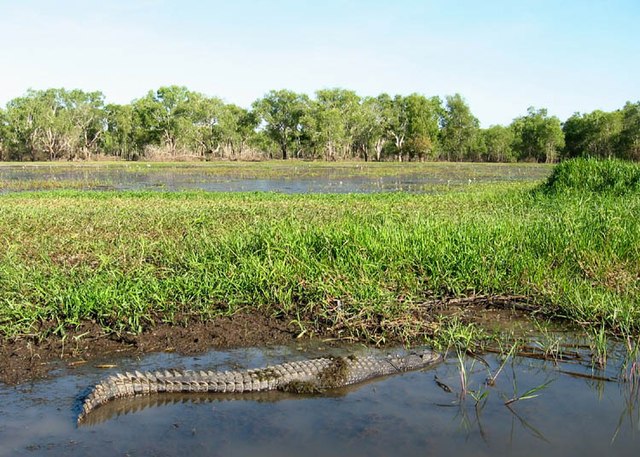
-

-

-

-

-
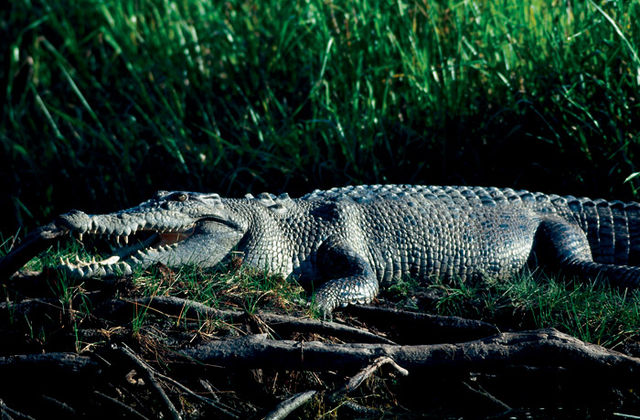
-

-

-
-

-
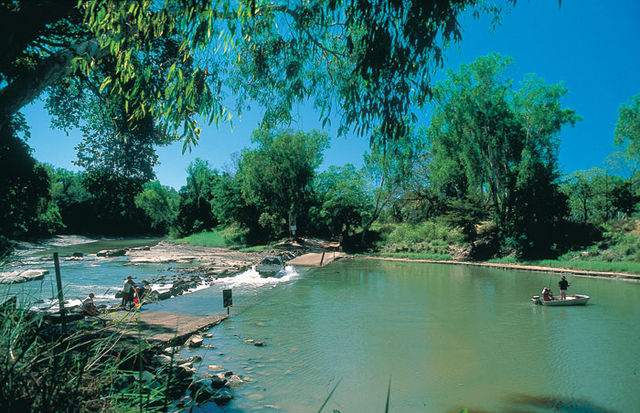
-

-

-
 Skalniak krótkouchy
Skalniak krótkouchy
-

-
 Krokodyl różańcowy, Yellow Water
Krokodyl różańcowy, Yellow Water
-

-
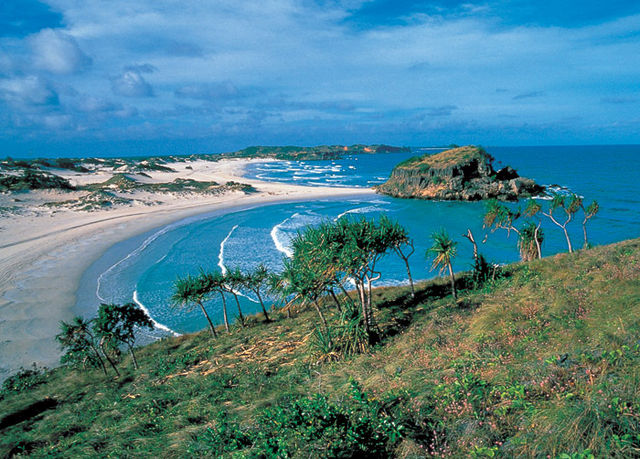
-
-
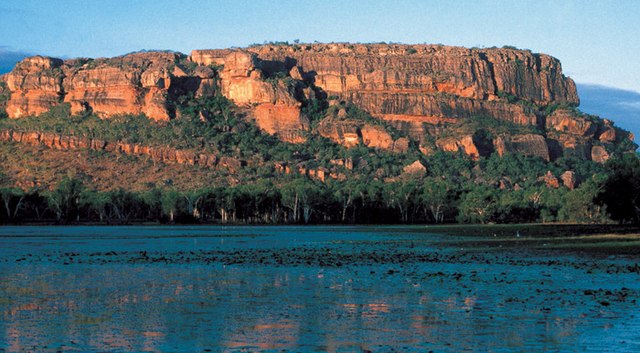
-
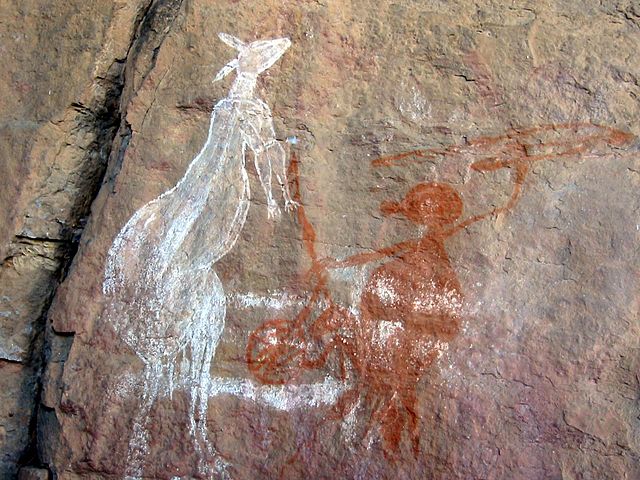
-

-

-
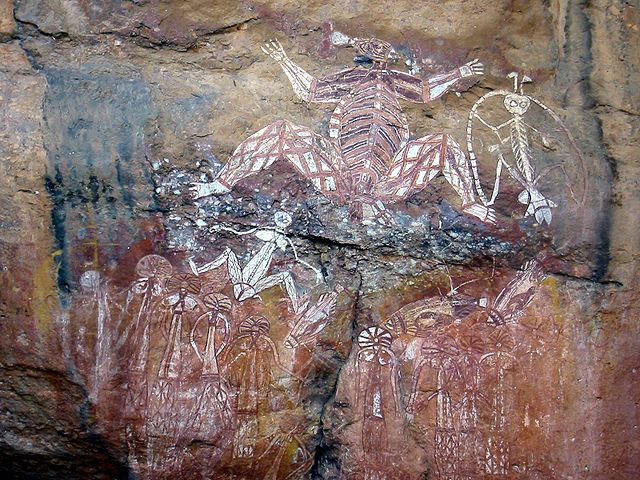
-
-
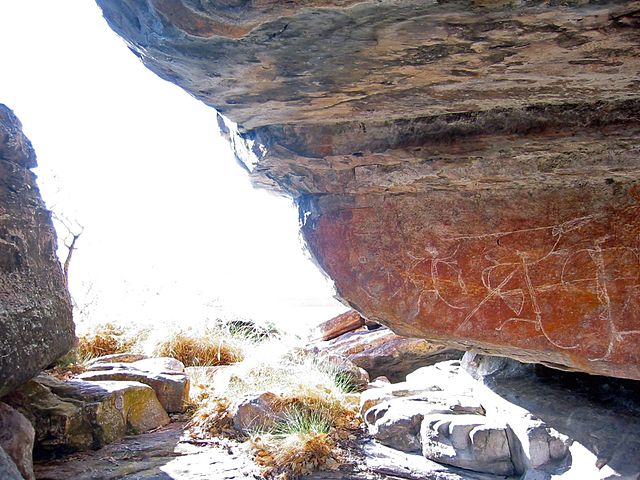
-
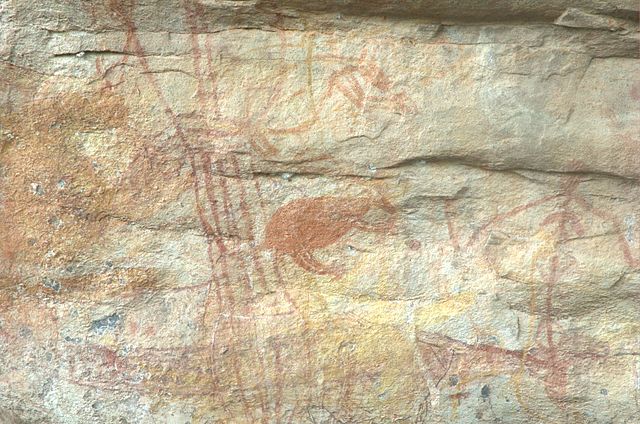
-

-

-

-

-

-
-
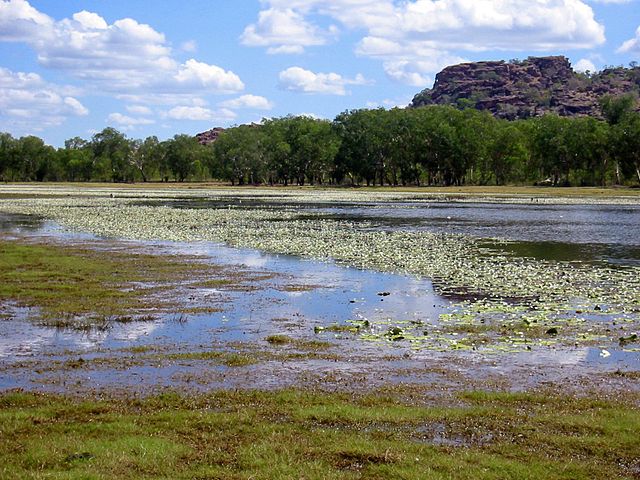
-
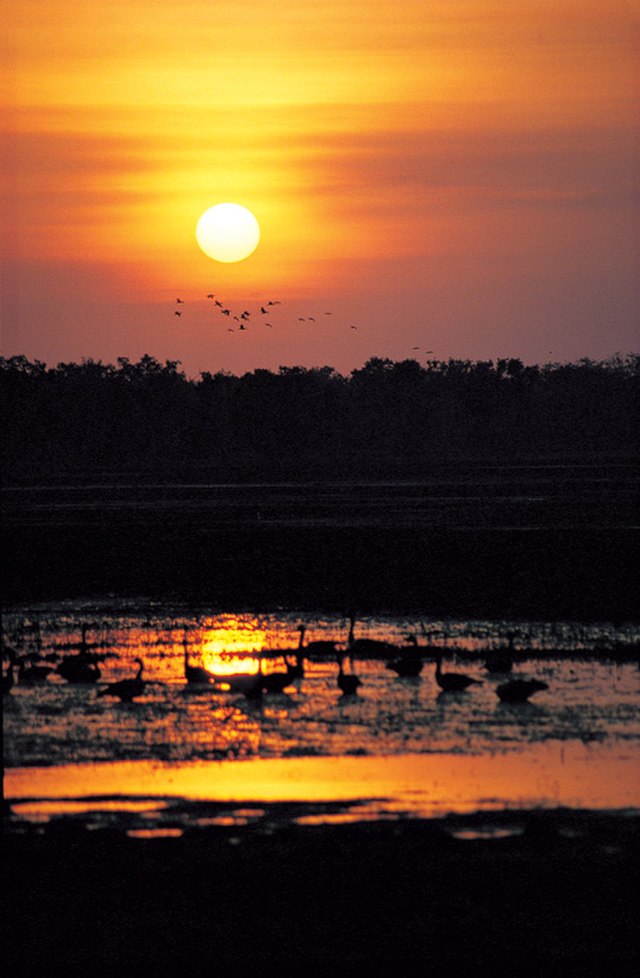
-

-
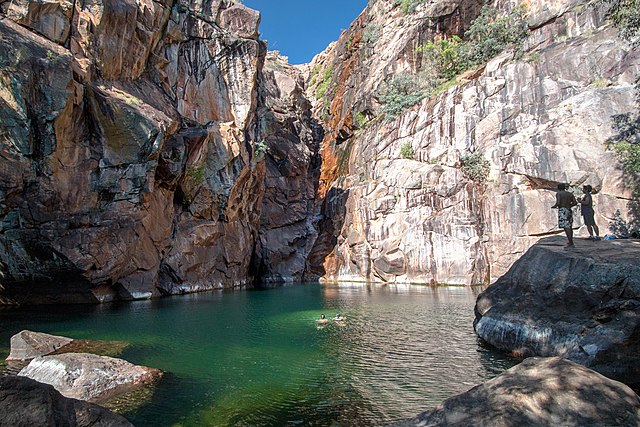
-

-
-

-

-
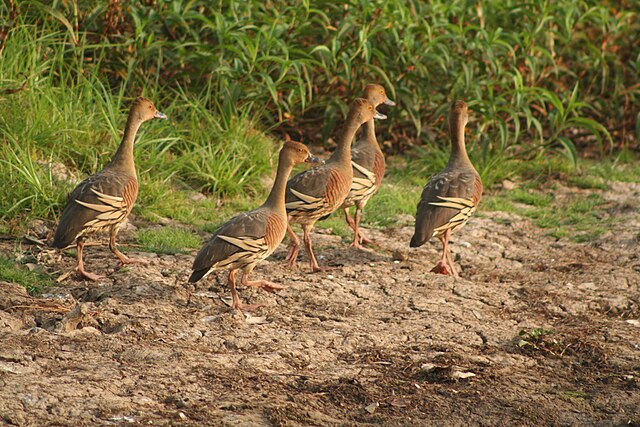
-

-

-

-

-
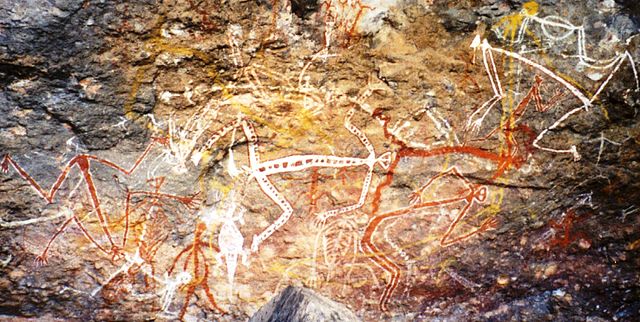
-

-

-

-

-
 Eucalyptus koolpinensis
Eucalyptus koolpinensis
-
 Żabiru czerwononogi
Żabiru czerwononogi
-
 Agama kołnierzasta
Agama kołnierzasta
-
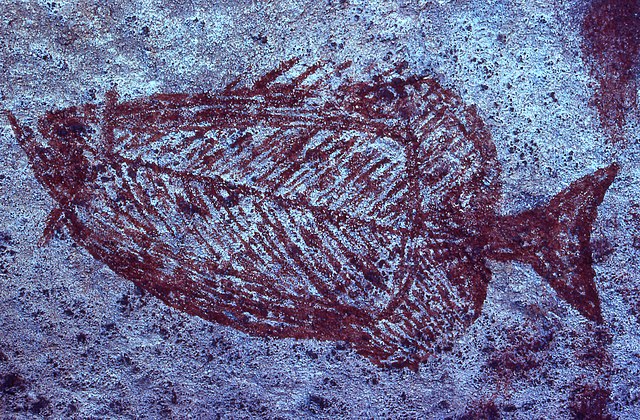 Ubirr – rysunek naskalny
Ubirr – rysunek naskalny
-
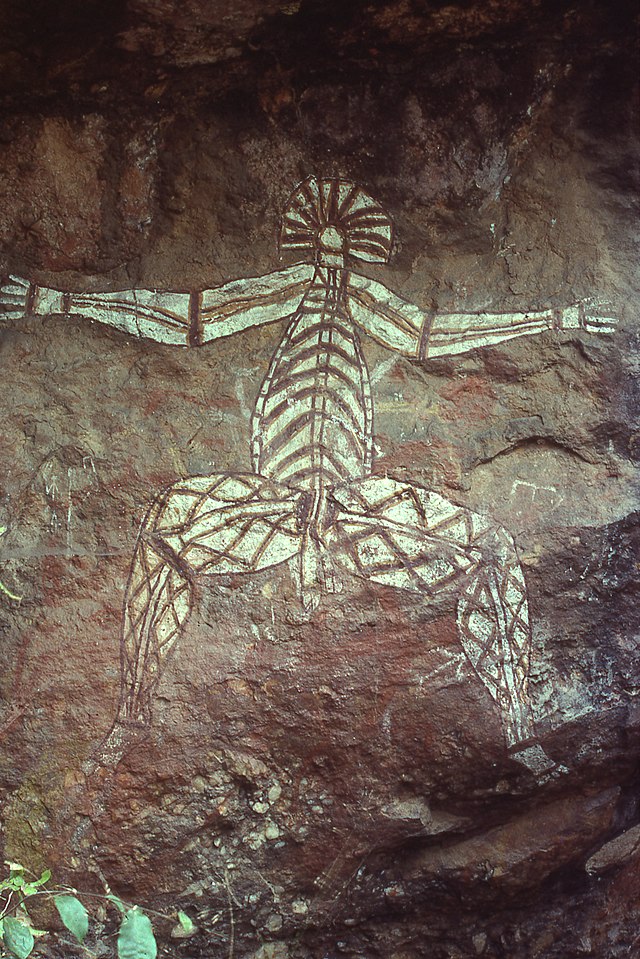 Nourlangie – rysunek naskalny
Nourlangie – rysunek naskalny
-

-
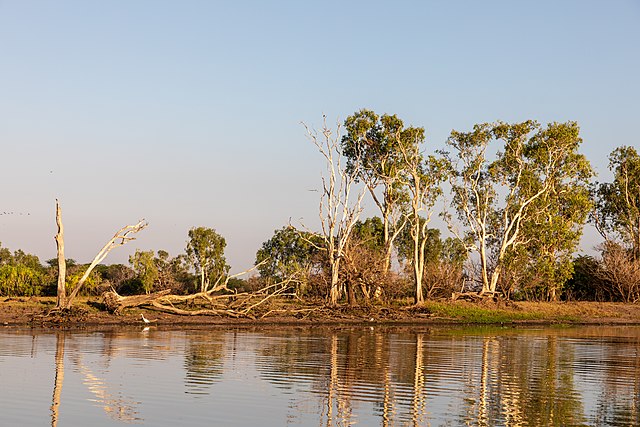
-

-

-

-

-

-

-

-

-

-
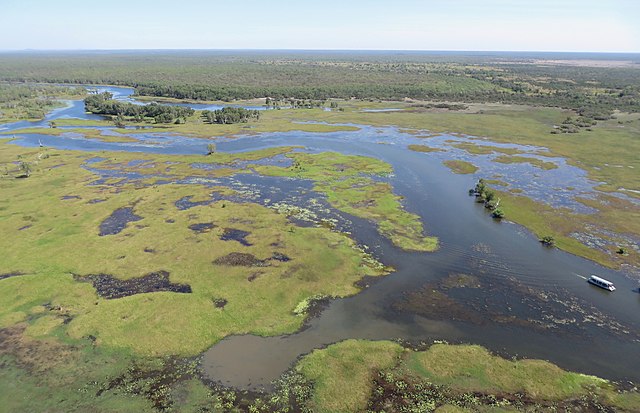
-
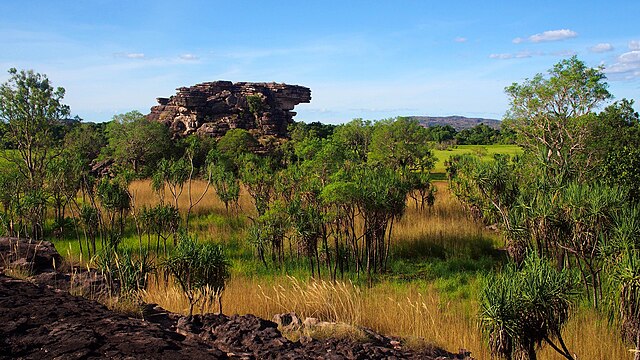
-

-

-
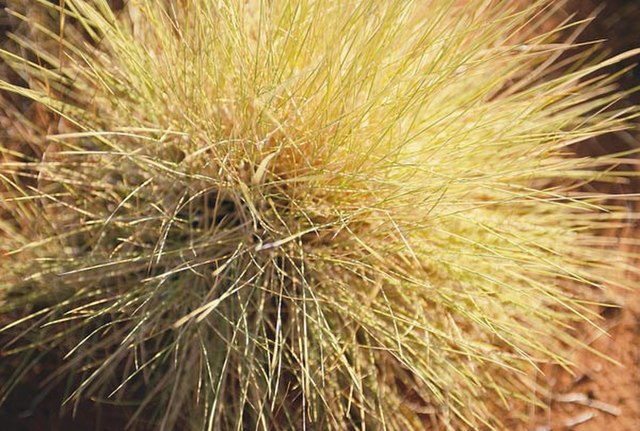
-

-

-

-
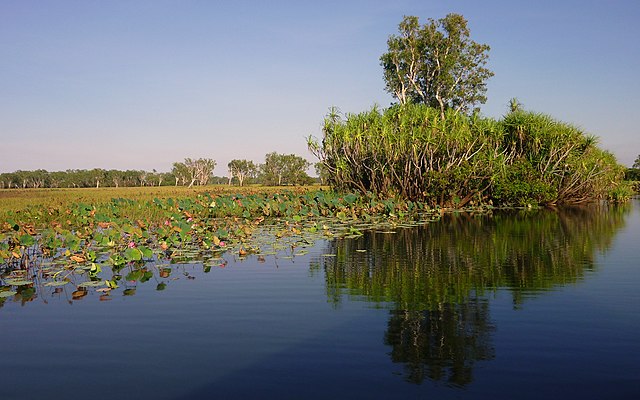
-

-
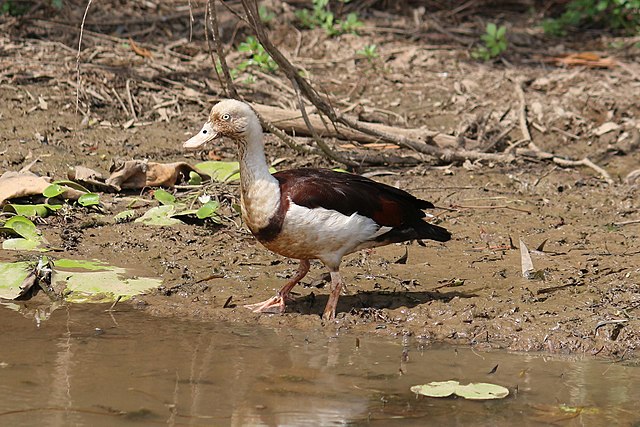
-

-

-

-

-

-

-

-

-

-

-
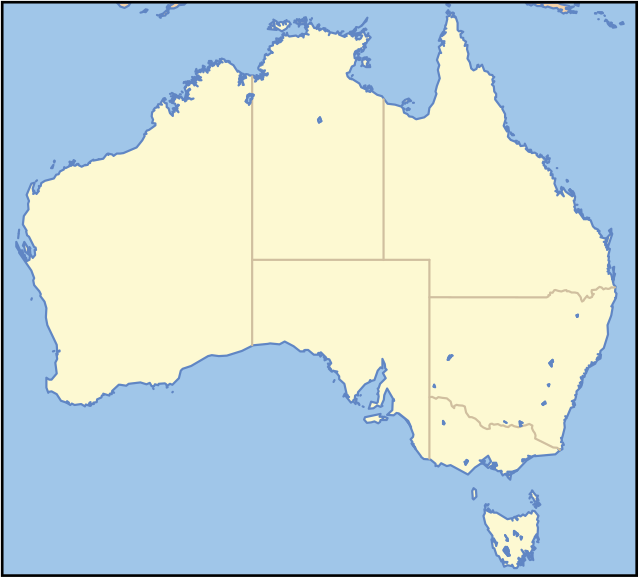
-

Comments
-
Kakadu National Park is one of the most impressive wonders of the country. Above all, Kakadu holds dreamlike landscapes, lush vegetation full of life, a variety of views, and a humid climate. Waterfalls, rivers, extensive plains, stony hills, ravines and diverse types of plants make up this impressive National Park. Kakadu surely took all the best sides of the region. If you are thinking about visiting Australia, this has to be a mandatory destination. Stopping here and admiring everything that the Kakadu National Park has to show is a must. And you can enjoy it all on a four-wheel-drive safari! Kakadu is located in the South Alligator River system, to the far North of Australia, a couple of hundred kilometers southeast of the state capital Darwin. However, if you come from Sydney or Melbourne, you have to fly to Darwin. Most airlines offer international flight packages including inland flights.
2 months ago -
Great bush camping and walks. Excellent info and education around the walks and rock art sites. The cultural centre is brilliant. The Guluyambi cruise on East Alligator River was also brilliant.
a month ago -
-
Kakadu has so much to offer. The landscape changes considerably as you drive through. Each season has something to offer. The wetlands have a lot of birds. Heaps of crocs in the rivers....don't swim there. Scenic flights, boat cruises and walks on offer. I loved my visit here. The campsites are also great.
7 months ago -
-
World Heritage-listed Kakadu National Park, in the Top End, is Australia's Largest National Park and one of the world's most spectacular wilderness areas. Covering more than 19,840 square kilometers, Kakadu is the largest national park in Australia and the second largest in the world. Within its borders lie monsoon rainforests, mangrove swamps, rivers, gorges, ancient rock paintings, wetlands, and waterfalls, as well as an astounding diversity of wildlife. On the north coast lies the tidal zone, with river estuaries, mangrove swamps, and tall monsoon rain forests. Inland are the flood plains through which rivers pursue a winding course to the sea. The escarpment of the Arnhem Land plateau runs diagonally through the park from southwest to northeast. After heavy rain, water pours over its bare rocks and down the escarpment in magnificent waterfalls- Jim Jim Falls and Twin Falls are two of the most famous. Farther inland lies the gently undulating upland country crossed by the main access roads and excellent hiking trails. The amazing variety of wildlife includes more than 70 different species of reptiles, the largest and most dangerous of which is the saltwater crocodile, as well as a vast array of fish, mammals, and birds. In addition to all these natural attractions, the park is home to many sacred aboriginal sites and rock paintings. You can explore the park by car, on foot, and on cruises through the waterways, but note that seasonal flooding may close some sections of the park-especially during the wet season. For comprehensive information on the natural history and culture of this unique area stop by the National Park's Visitors Center in Jabiru. The best time is in the dry season between June and August. During the wet season it's rain and it is too hot. 3 days will enough to explore whole area of park. It's open for visitors 24×7.
10 months ago -
Beautiful scenery, worth the travel! Catch the sunset at Uluru and watch the rock change colour, book the light up tour before you get there as we missed out to no availability to book in on the day (and we were there in a quiet time) Normally $25 per person entry into the national park but currently free due to rona! Yay. Campsite is $45 unpowered with nice facilities. Petrol is priced as mad as expected.. think we paid $1.80 per litre..
11 months ago -
We went here in 2018. We went here visiting a friend of ours and their local friend. He took us to the local must go places to visit. This place is so big and vast that in the week we were there we got to see a lot but not everything. We have to go back. Would advise everyone to take heed of the signs and done swim where crocodiles are, don’t risk it.
a year ago



























































































